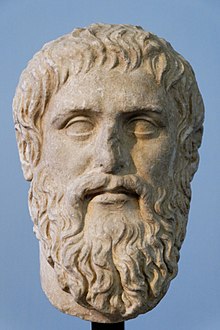
Plato Page 3
We found 21 free papers on Plato
Essay Examples
Overview
The Crito by Plato
Ethics
Plato
Socrates
The Crito Out of the many dialogues written by Plato, The Crito is one of the brief dialogues he had written which discussed an essential characteristic of state-society relationship. This dialogue served as a prologue to his greatest work – The Republic – where the covenant of the society with the state is further elaborated….
The Themes Adresses in the Allegory of the Cave
Allegory Of The Cave
Explain the Themes addressed in Plato’s allegory of the Cave, Making particular reference to the Theory of Forms There are several themes represented in the allegory of the cave, one of the first themes you come across while reading the Allegory of the Cave is ignorance. The chains binding them to the cave could merely…
Cathedral: Allegory of the Cave and Narrator Analysis
Allegory Of The Cave
Plat’s Allegory of the cave Is a story about a prisoner who Is freed from being locked In chains living all of his life underground and finding out a different perspective about a Ill he’s been paving his whole life, being told as a conversation between Socrates and Glaucoma. In the stories, ” Cathedral” by…
The Difference Between Analytic and Speculative Philosophy Critical Analysis
Euthyphro
Philosophy
Philosophy, an Academic discipline, utilizes reason and logic to comprehend reality and address essential inquiries about knowledge, life, morality, and human nature. It is also regarded as the foundation of all sciences. Philosophy aids in coordinating individual and societal activities while comprehending the importance of all human experiences. It constructs a comprehensive system of thoughts…
Plato’s “The Allegory of the Cave” as Means to Explain “The Apology”
Allegory Of The Cave
Authors sometimes use one work to explain or elaborate on the intricacies of another piece of theirs. Plato is one such example as he uses “The Allegory of the Cave” as means to better decipher “The Apology of Socrates. ” Plato himself never appears in either dialogue, but it is clear that he disagrees with…
Allegory of the cave argumentative
Allegory Of The Cave
At some point, a prisoner is set free and is forced to see the situation inside he cave. Initially, that person does not want to give up the security of his or her familiar reality; the person has to be dragged past the fire and up the entranceway. This is the difficult and painful struggle…
Socratic Aporia: the Knowledge Behind Truth
Euthyphro
Truth
While reading Five Dialogues by Plato, I encountered numerous obstacles in understanding the discussions between Socrates, Meno, and Euthyphro. It became evident that these conversations seemed circular because the conclusion was elusive. Socrates challenges the assertions made by Euthyphro and Meno by posing more questions, ultimately leading to their resignation. In Lecture 2, you mentioned…
Rhetorical Analysis of Plato’s the Allegory of the Cave
Allegory Of The Cave
Imagine yourself sitting inside a dark, damp, cave where the only thing you can see are moving shadows on the cave wall in front of you. You can’t move anywhere or see anything besides the shadows, and these are the only things you’ve seen for your entire life, so these moving dark images are the…
PLATO The allegory of the cave
Allegory Of The Cave
The allegory of the cave- summarised in informal essay form. Plato’s “Allegory of the Cave” represents an extended metaphor that is to contrast the way in which we perceive and believe in what is reality. The thesis behind his allegory is that, the basic tenets that all we perceive are imperfect “reflections” of the ultimate…
Comparing The Allegory of the Cave and Narrative of the Life of Frederick Douglass
Allegory Of The Cave
Frederick Douglass
Plato’s work in the Allegory of the Cave emphasizes the actualization of reality and truth. Fredrick Douglass’ life, which is portrayed in Narrative of the Life of Frederick Douglass, an American Slave, is similar to Plato’s philosophical idea presented in “The Allegory of the Cave. ” Plato, a Greek philosopher introduces the significant meaning of…
| born | Classical Athens |
|---|---|
| died | Athens, Greece |
| description | Plato was an Athenian philosopher during the Classical period in Ancient Greece, founder of the Platonist school of thought and the Academy, the first institution of higher learning in the Western world. |
| books | A Very Short Introduction, Timaeus, Ion, Crito, Timaeus et Critias, Republic, Phaedo |
| quotations | “Be kind, for everyone you meet is fighting a harder battle.” “Every heart sings a song, incomplete, until another heart whispers back. “We can easily forgive a child who is afraid of the dark; the real tragedy of life is when men are afraid of the light.” “Only the dead have seen the end of war.”,One of the penalties for refusing to participate in politics is that you end up being governed by your inferiors. Opinion is the medium between knowledge and ignorance. Good people do not need laws to tell them to act responsibly, while bad people will find a way around the laws. Music is a moral law. |
| information | Influenced by: Socrates, Pythagoras, Heraclitus, Parmenides, Homer, Protagoras, Gorgias, Hesiod Parents: Ariston of Athens, Perictione Siblings: Glaucon, Adeimantus of Collytus, Potone, Antiphon |

